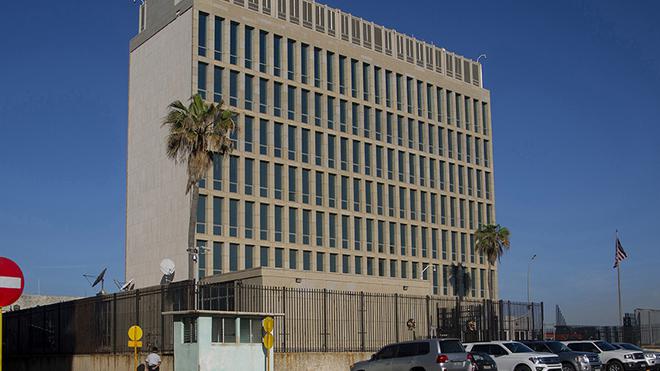Havana Syndrome: Recent investigations by The Insider, Der Spiegel, and CBS’s 60 Minutes have linked the mysterious illness affecting US diplomats, known as “Havana Syndrome,” to a Russian intelligence unit.

In recent years, a perplexing and alarming phenomenon has emerged within the ranks of US diplomats stationed abroad: the onset of mysterious symptoms collectively referred to as the “Havana Syndrome.” This enigmatic ailment, characterized by symptoms such as dizziness, headaches, and an intense, painful sound in the ears, has left affected personnel grappling for answers and recourse.
Also Read:- Fortnite Star Ninja’s Shocking Health Revelation: Battling Melanoma
While initially dismissed as isolated incidents, a series of investigations by prominent media outlets, including The Insider, Der Spiegel, and CBS’s 60 Minutes, have uncovered a disturbing link to a Russian military intelligence unit, 29155.
About Havana Syndrome
The origins of the Havana Syndrome trace back to Havana, Cuba, where the first cases were reported in 2016. However, recent revelations suggest that similar incidents may have occurred as early as two years prior in Germany. Since then, reports of the syndrome have surfaced in locations spanning the globe, from Washington to China, painting a troubling picture of a widespread and systematic targeting of US personnel.
The suspected cause of the Havana Syndrome, according to the joint investigation, points to the deployment of Russian sonic weaponry. This assertion aligns with longstanding suspicions that directed energy or microwaves could be responsible for the symptoms experienced by affected individuals. The revelation that a specific Russian military intelligence unit, 29155, may be behind these attacks has intensified scrutiny and raised questions about the motivations and tactics of Russian operatives.
The implications of these findings are far-reaching and underscore the evolving landscape of modern espionage and warfare. The alleged use of “directed energy” weapons to target diplomats represents a concerning escalation in tactics, blurring the lines between conventional and unconventional methods of aggression.
Also Read:- University of Missouri Student Riley Strain’s Body Found in Cumberland River in West Nashville
Furthermore, the apparent willingness of Russian operatives to employ such tactics against diplomatic personnel raises serious concerns about international norms and the sanctity of diplomatic immunity.
Despite mounting evidence pointing to Russian involvement, Moscow has vehemently denied any culpability, dismissing the allegations as unfounded and baseless. This denial only adds another layer of complexity to an already convoluted and murky situation, leaving many unanswered questions and fueling speculation about the true extent of Russian involvement.
In response to the Havana Syndrome, US officials have pledged to continue investigating the matter, reaffirming their commitment to uncovering the truth and providing support to affected personnel. However, skepticism remains among some quarters, with former officials like John Bolton criticizing what they perceive as a lack of urgency and seriousness in addressing the issue.
As the investigation into the Havana Syndrome continues to unfold, it serves as a stark reminder of the complex and multifaceted challenges facing the international community in an increasingly interconnected and unpredictable world.
Also Read:- Shocking: Terror Strikes Moscow Concert – What Really Happened Will Leave You Speechless
The need for heightened vigilance, cooperation, and transparency in confronting such threats has never been more apparent, underscoring the imperative for a united and coordinated response to safeguard global security and stability.
